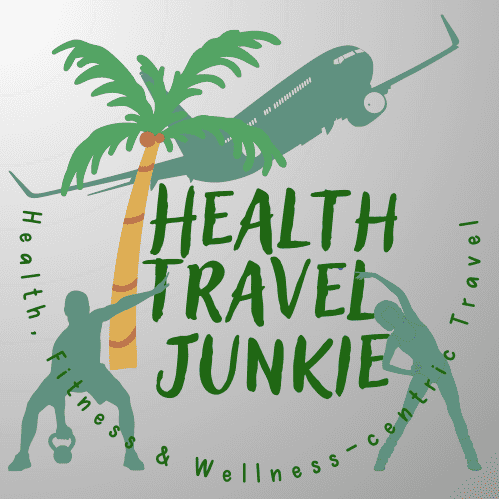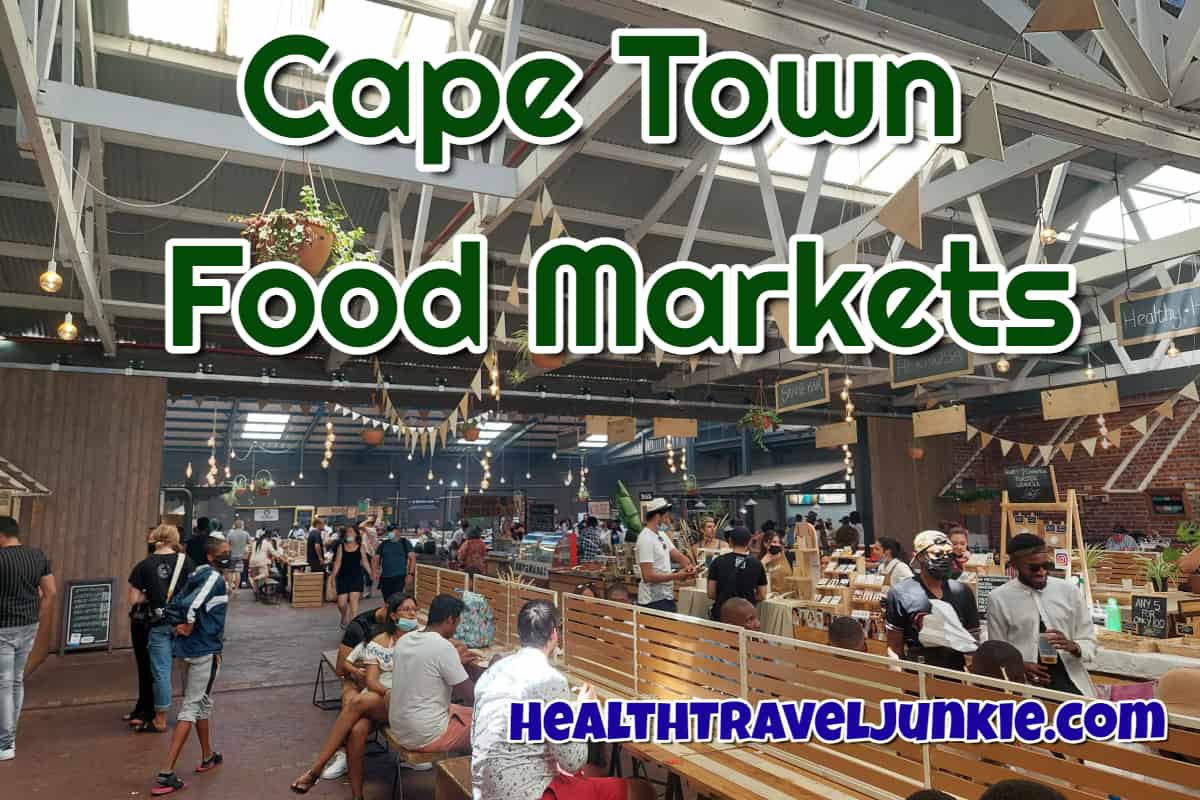Cape town (South Africa) is a popular tourist destination with plenty of food markets. Expect healthy local street-food, social vibes, good times, and a few crafts.
Contents
The Neighborgoods Market @ The Old Biscuit Mill
The Old Biscuit Mill is a famous Saturday market in Cape Town (375 Albert Rd in Woodstock), popular with tourists and locals alike. Nowadays, there’s also a D.J. spinning some tunes on the decks for those who want to sit around and chill with an alcoholic drink. The market continues up to around 3pm.
There’s plenty of health-centric options, and gourmet streetfood ranging from cheap to expensive, depending what you’ve got a taste for…
Next to the market are the permanent tenants selling Capetonian art and crafts, dark coffee, dark chocolate, hipster clothes, and so forth.
It’s the only place I found in Cape Town that consistently sells fresh green coconuts with coconut water (at least every weekend). Apart from the alcohol next to the DJ area, there’s also sugarcane juice, smoothies, and green juice.
Local chefs showcase their homemade foods and talents at the Neighborgoods market. Whether it’s the largest and most tourist-worthy market of this kind in Cape Town, it would be a fight between themselves and Oranjezicht, further below.
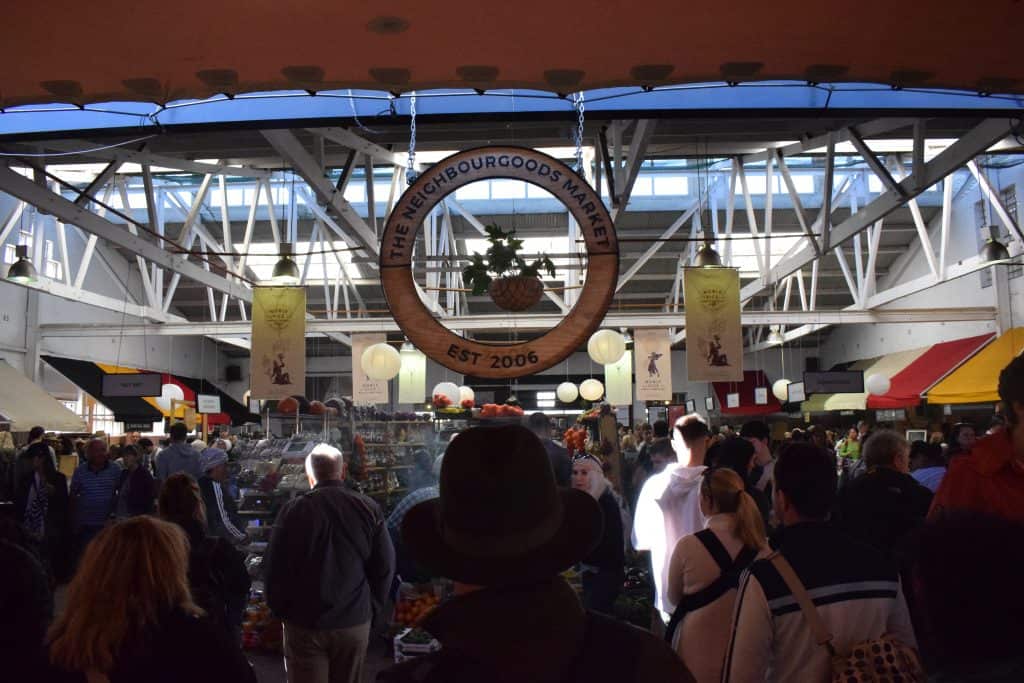
Vegan Goods Market
If you’re into vegan food you’ll appreciate the Vegan Goods Market in Tokai.
What to expect
Here’s a selection of stalls you may encounter:
- Mushroom grow bags, such as Reishi. You need to water it a few times every day, and it’ll take around 3 months to grow into an edible state. Plus, its not really for Winter as temperatures get too cold. So it’s a cool thing to try in Summer, if you commit to watering daily.
- Oats ice cream – a great alternative to Soy or Dairy ice cream. However, it’s obviously simply a dessert. Not much nutritional value.
- Indian Rotis for R50 with chickpeas. Soy-free, which is good.
- Green juice for R50.
- Some random crafts like soap, candles, a bit of interior décor plus jewelry for women.
- Fake meats. The negative is the fake meats contain soy. This is a shady ingredient with many potentially negative side-effects (especially when it’s highly processed).
- Thus the Soy empanadas and soy samosas are basically junk food. But there are also non-soy options.
- Fresh coconuts. Let them cut it open after drinking the coconut water & also eat the white flesh inside.
- Vegan Chai milk. Both ready-made, as well as in take-home powder form. At Muizenberg’s BlueBird Market there was a stall that sold Chai with “vegan oat milk”. However, when I checked the ingredients, it contained cow’s milk in the form of “whey powder”. However, the Vegan Market’s chai stall was 100% vegan.
- Vegan brownies, marshmallows, meringues, shawarma, Kombucha, granola, fluoride-free toothpaste, etc.
Negatives to Veganism
I’m not vegan. I don’t see veganism as something that makes you healthier by itself. Here’s a few reasons why:
- Processed GMO soy can negatively impact female estrogen levels, and lower male testosterone.
- Being extremely thin due to a vegan diet is not healthy. In the same way that carrying around many extra kilograms of bodyweight isn’t healthy either.
- There are often nasty additives to vegan food that you don’t find in free range meat, including unhealthy food preservatives. Or white sugar. Simply because something is “vegan”, definitely doesn’t automatically mean it’s healthy.
Nevertheless
The Vegan Goods Market is the best Cape Town Market for specifically vegans. But if you’re not vegan, the other markets in this list are probably better. They’re located at “The Range” in Tokai (a suburb of Cape Town), from 10am to 3pm on some Sundays (check their website to find out when exactly they’re open).
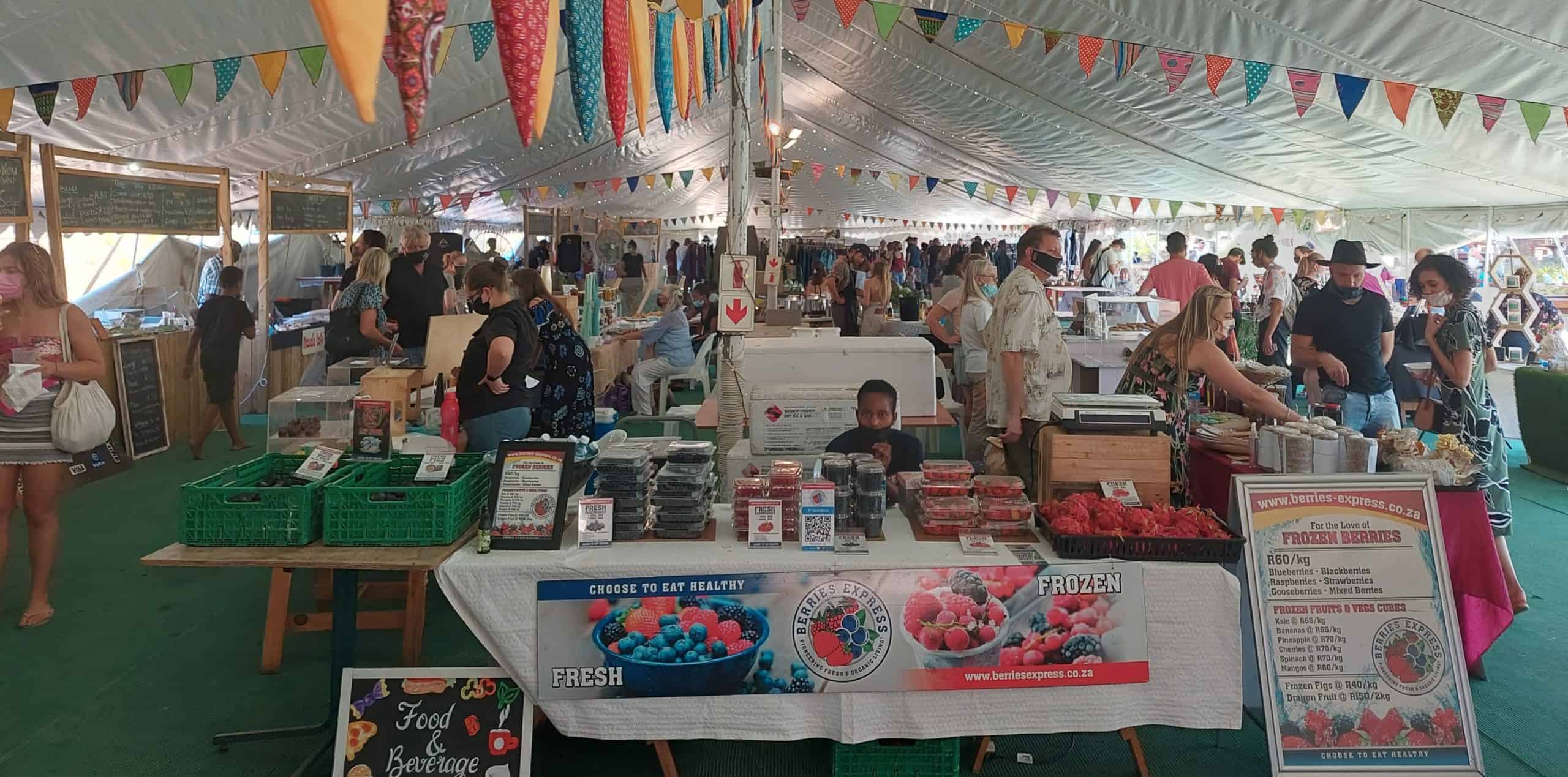
Oranjezicht Market
Then there’s the Oranjezicht Market close to the Waterfront Shopping mall in the Cape Town City Bowl. It’s very similar to the Old Biscuit Mill: Mainstream and busy on Saturdays and Sundays. There’s also a mid-week night market on Wednesday evenings.
You’ll find plenty artisan speciality foods and products like home-made soap, house plants, Mushroom kebab, sourdough bread, and organic biltong without MSG and preservatives. It’s generally a nice place to get some locally handcrafted products and foods. Thus, its a different experience than going to a shopping mall. Plus, its outdoors, with plenty of seating. Great for getting vitamin D, some social interaction, and good stuff like green smoothies for a strong immune system.
Most tourists check out either this market or the Old Biscuit Mill on week-ends. So there’s no point writing long paragraphs, as you’re probably already planning a visit.
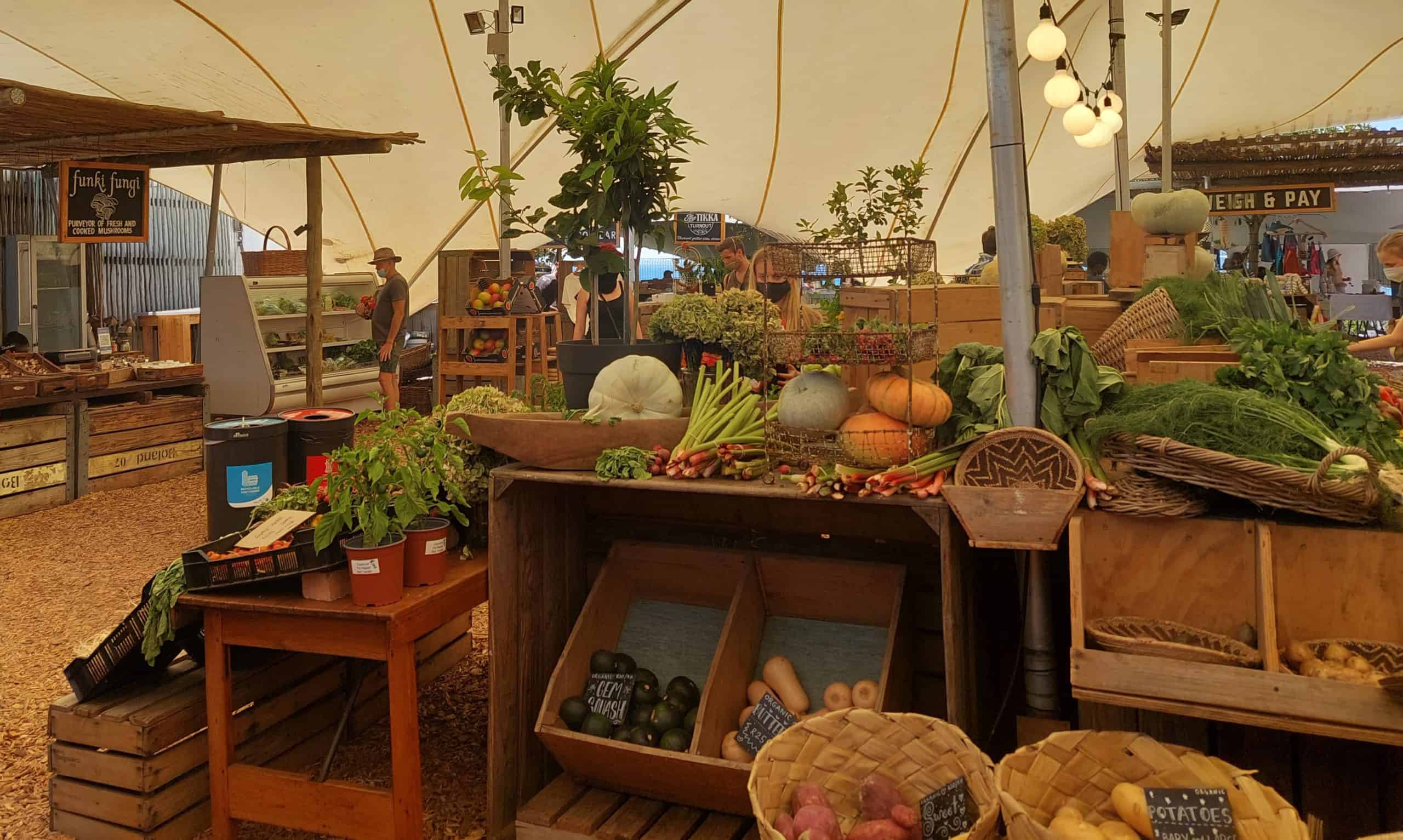
Bay Harbor Market
This is a good medium-sized market for weekends. It’s permanently located in Hout Bay, not too far from central Cape Town. There is less choice than the previous two markets. Yet the stalls tend to be health-centric, e.g. biltong without chemical additives, salad dressings without chemicals, green smoothies, and other natural foods. This is alongside the local clothing, crafts and home decor.
Even though the choice is smaller at the Bay Harbor Market, the vendors generally know their stuff, and don’t disappoint.
It’s located in a scenic part of Hout Bay. You may notice some seals getting sun down the road. Along with the mountains and Hout Bay Harbor, it’s a relaxing tranquil neighborhood in Cape Town’s Southern Suburbs.
The Bay market is not as large as Oranjezicht Market and the Old Biscuit Mill. But it’s larger than the following two markets.
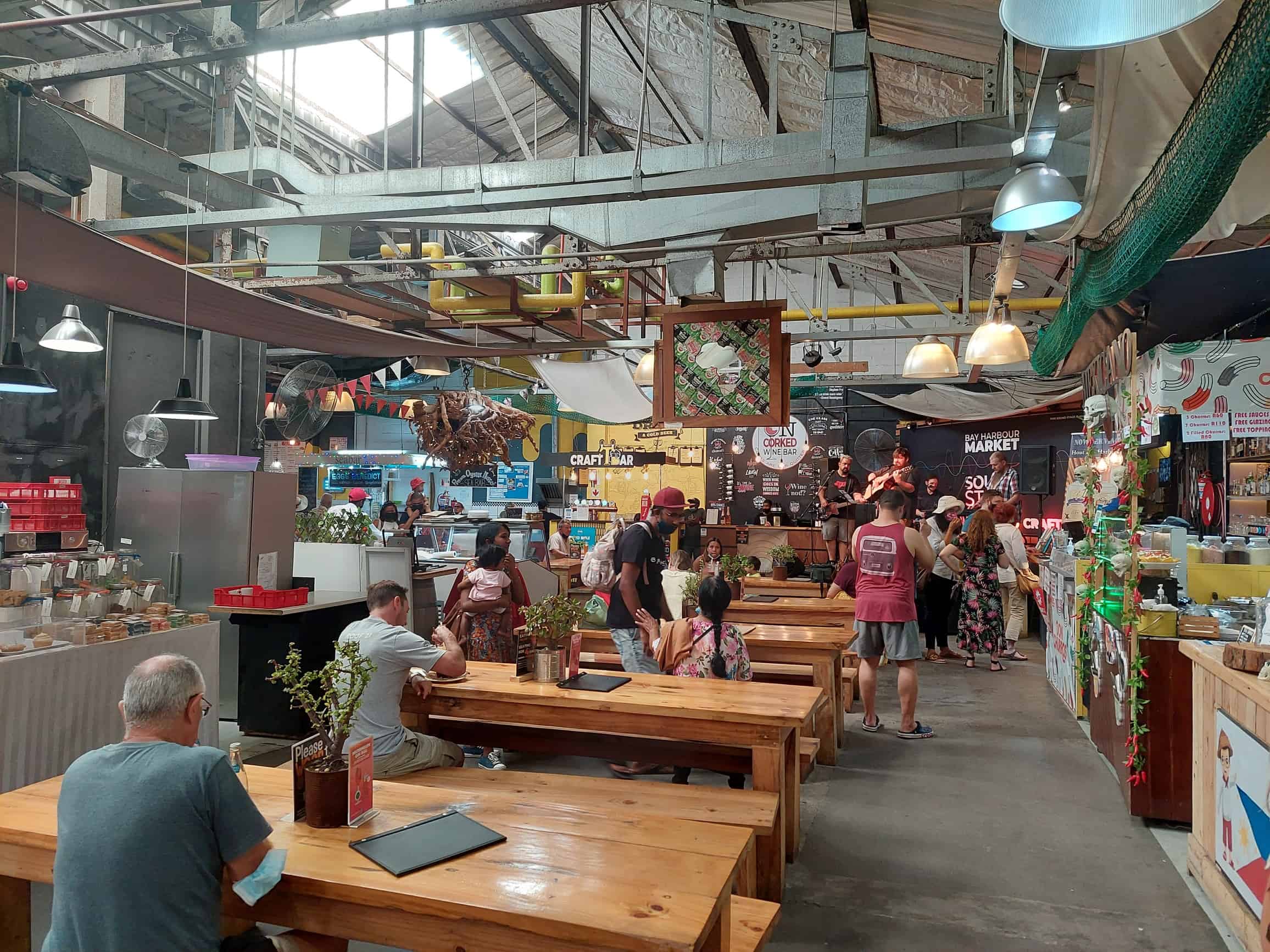
Bluebird Garage Market
Bluebird in Muizenberg is a small market with some basic stuff, and one or two unique food stalls. It’s a decent place to get a drink after work on Thursdays or Fridays. But otherwise, it’s not worth driving to Bluebird if you don’t live in this area of Cape Town. It’s rather intended as a service to the local community.
I dropped by one Thursday evening after surfing at Muizenberg. I simply ordered some tasty battered baked cauliflower. Plus, a “pseudo-vegan” chai tea with oat milk which I mentioned above. The oat milk is vegan. But the chai tea contains whey, which is derived from cow’s milk.
I left again shortly after. There wasn’t much to keep my attention. Here’s a link to their website to see if it piques your interest.
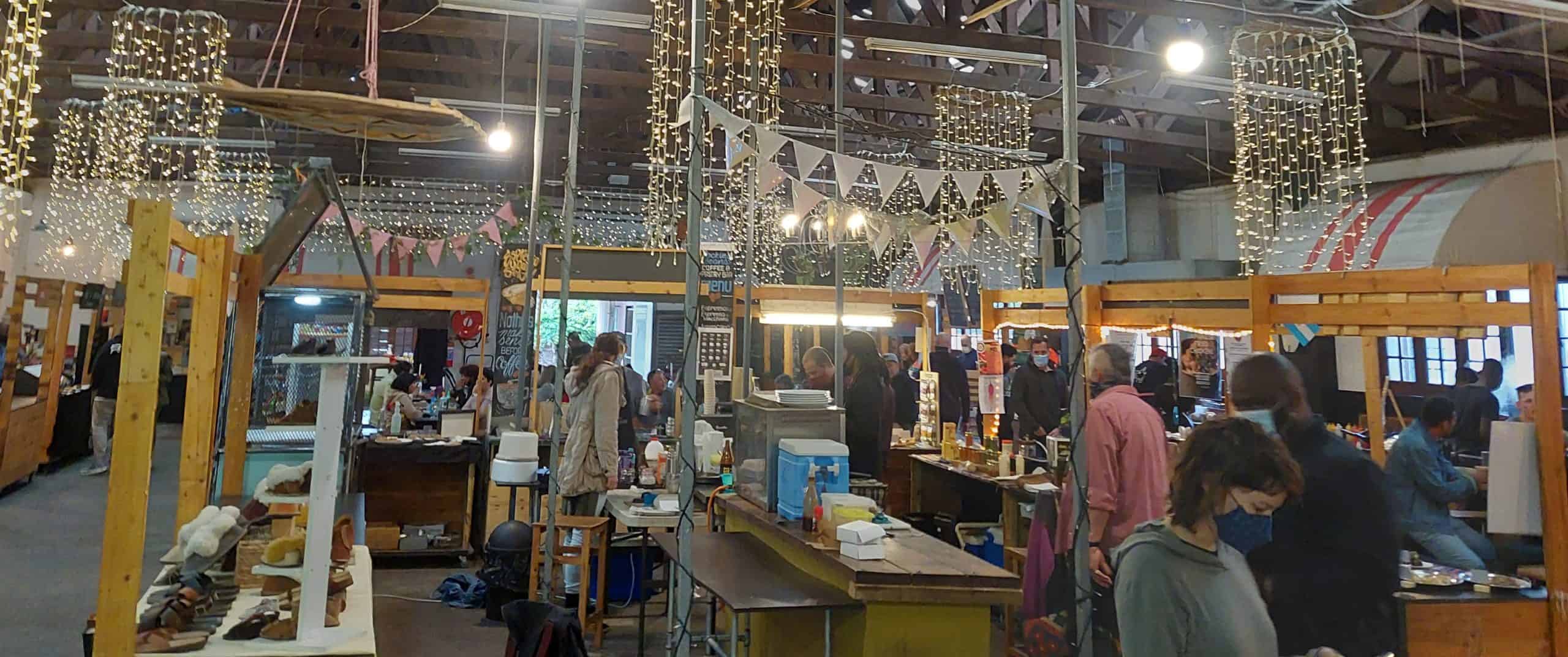
Earth Fair Market
They’re open Wednesday evenings, and Saturdays during the daytime. It’s currently located in Constantia (Timour Hall). Check their website before driving there to verify their up-to-date address.
It’s a very small community market. Thus although it’s a nice place for locals of this area to chill, it’s really not worth it for Capetonians, in general, to drive over there. Central Cape Town’s markets are much better than this one. Yet, it’s still a valuable service to the local community.
There’s a car boot sale market right next to the small food market. It’s thus similar to the Bluebird Garage Market in Muizenberg, although I’d say the Earth Fair is the smallest, and the least interesting, of all the markets in this post.
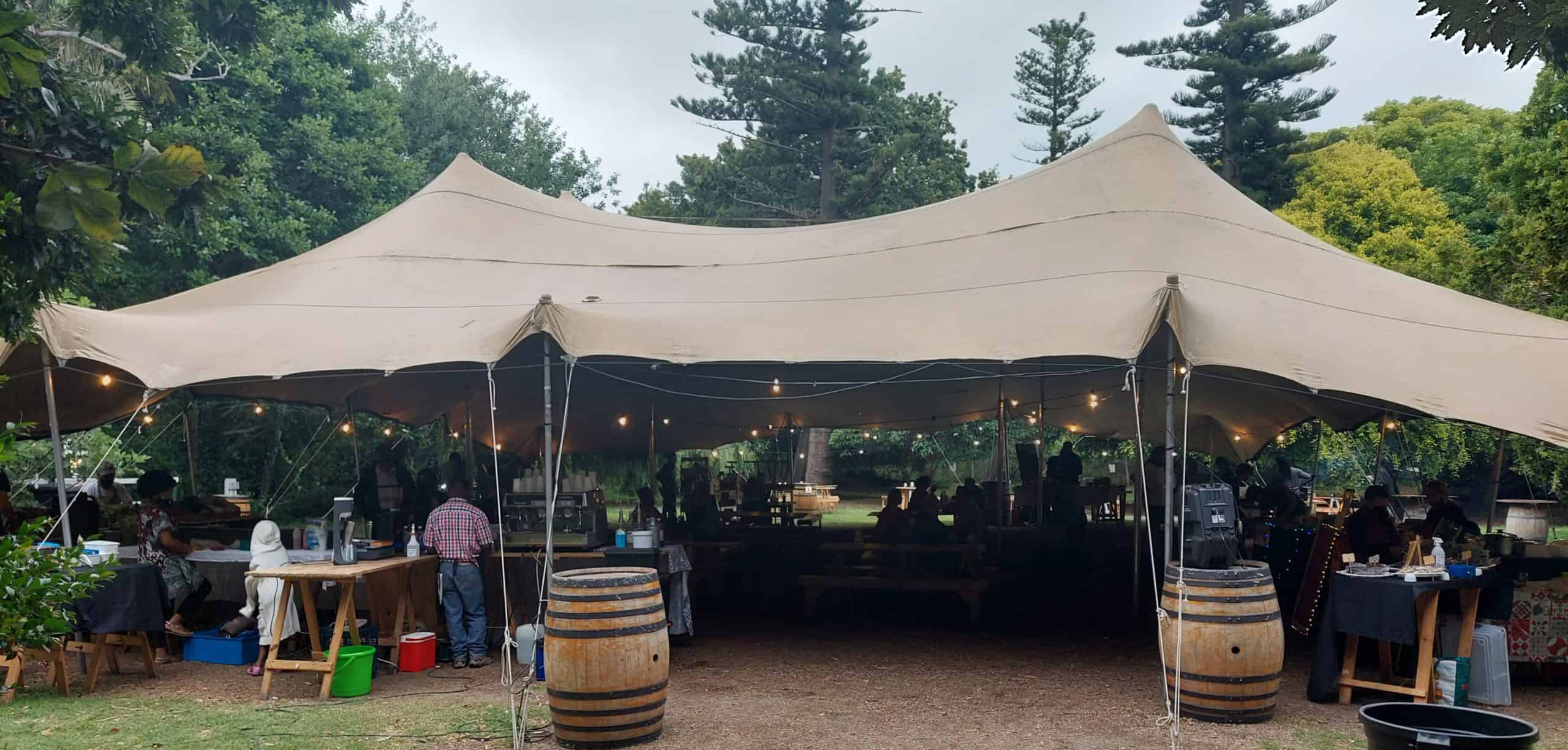
Waterfront Food Market
Update: Their lease expired thus they’re closed for business since January 2023. The new Market at this location is the Time Out Market. This is a place for gourmet upmarket streetfood.
Its a separate building next to the Waterfront shopping Centre. To be exact, ’twas the old Cape Town Dockyard Power Station. A few of the previous Waterfront Food Market vendors have now been moved out to the Watershed market next door.
The main lure of the Time Out Market is the central tourist-friendly location. Plus, the fact that it’s open every day of the week, from around 8am to 10pm. It’s conveniently situated for tourists strolling by in Cape Town’s harbour and V&A shopping area. I wouldn’t go there specifically to check it out. But if you’re already visiting the V&A shopping mall, it’s close by for extra lunch options.
Cape Town Market
This is a famous local, but mostly wholesale, fruit and veg market at the Epping industrial area. Restaurants, mini-markets, and other small businesses get their fruit from here. If you’re simply buying for yourself, it’ll be too many of one item. For example, I bought a large box of bananas. Since the shelf-life of bananas is relatively short, I dried it with my food dehydrator. Plus, I froze a few for smoothies.
Previously called the Epping Fresh Produce Market, nowadays they’re known as the “Cape Town Market”. On their website they list all the fruit they stock and at which current prices. So this is an unconventional type of market compared to the previous ones mentioned.
The main under-roof area is only open early mornings unto at latest 10am. To buy in this area, you have to register at the information office with your ID, and load a prepaid card. They don’t accept cash or credit cards. This is deliberately because inside they target wholesale buyers specifically.
However, there is also an outside pavement area that’s open unto later in the day. I’m not sure exactly how late, but it was still open at noon when I visited. This is aptly called the “People’s Market”. In this area, you pay cash, and all buyers are welcome. However, quantities are still relatively large, but at least it’s smaller than in the under-roof area.
At the people’s market there’s great in-season deals like boxes of avocados for under R100, large sachet of oranges for R50, a box of pomegranates for R50, or more peaches, plums, etc than you can eat by yourself, for R40 or less.
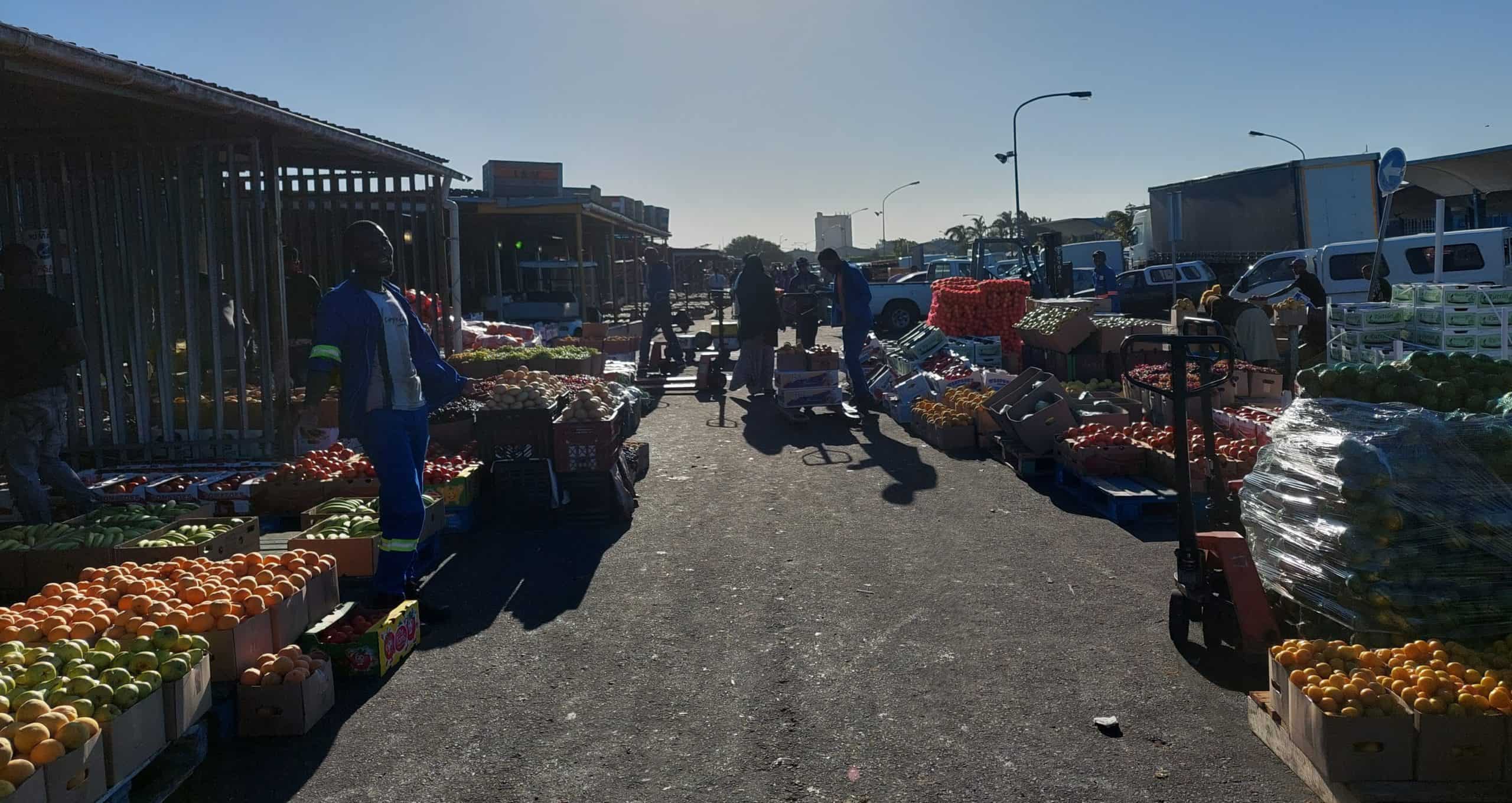
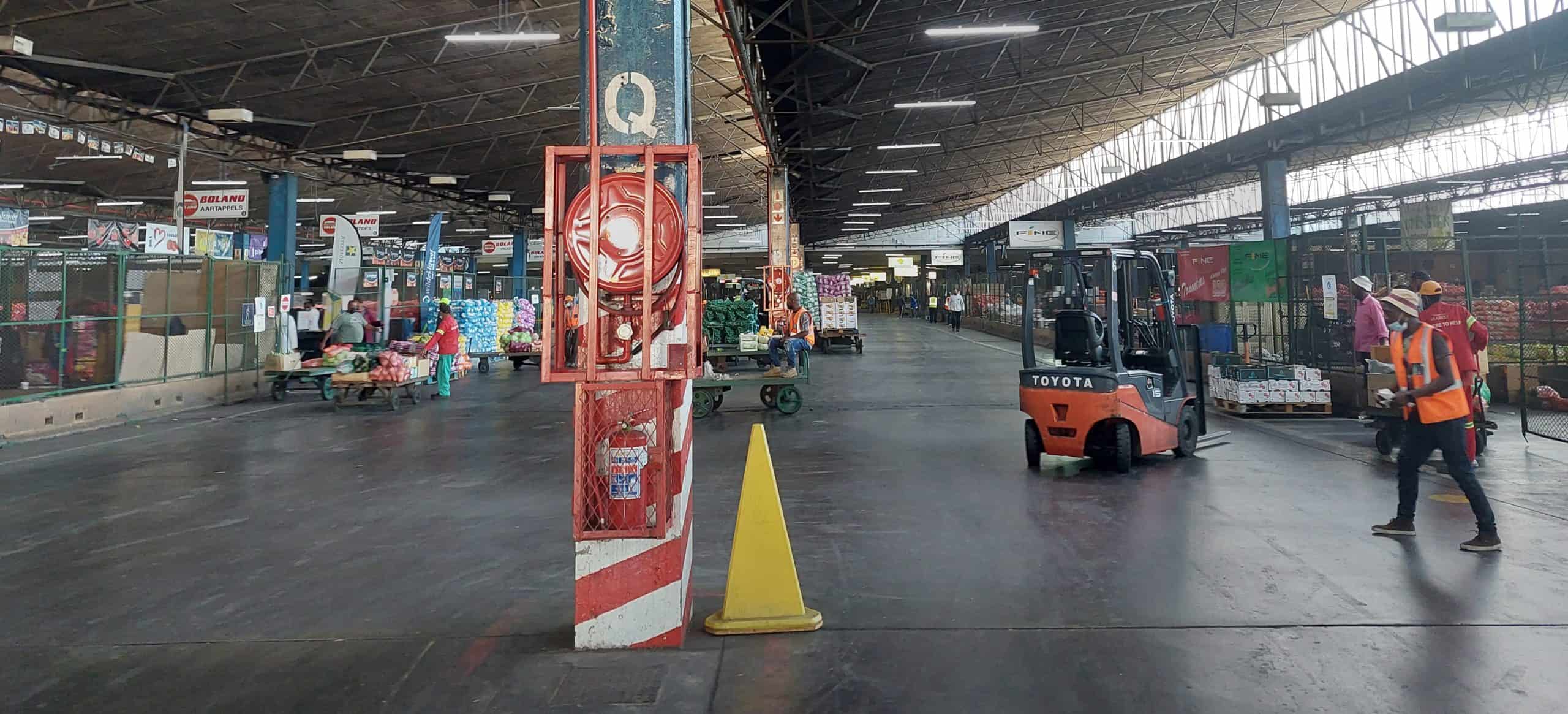
Slowmarket Willowbridge
The original Slowmarket was one of those legendary Stellenbosch Saturday markets, that ended up closing down permanently during the commie lockdown in 2020. Now, at least they still operate in the Willowbridge shopping mall in Durbanville. Willowbridge is a tiny shopping centre very close to the large famous Tygervalley shopping mall.
The Slowmarket is open weekend mornings from 9am up to 4pm on Saturdays, and 2pm Sundays. Since it’s an indoor market, it’s not affected by the weather at all. It’s relatively small, without much choice in the food section. But you’ll find some of the previous Stellenbosch vendors, e.g. Low Carb Breads.
There’s also plenty of craft stalls. The benefit is that the shopping mall offers extra choice, apart from the Slowmarket. Thus, also check out Willowbridge’s adjacent regular shops. It’s a little far out from central Cape Town, and I don’t recommend driving there. It’s not really worth it, UNLESS you live in the Bellville or Durbanville area. So it’s once more simply another smaller community market.
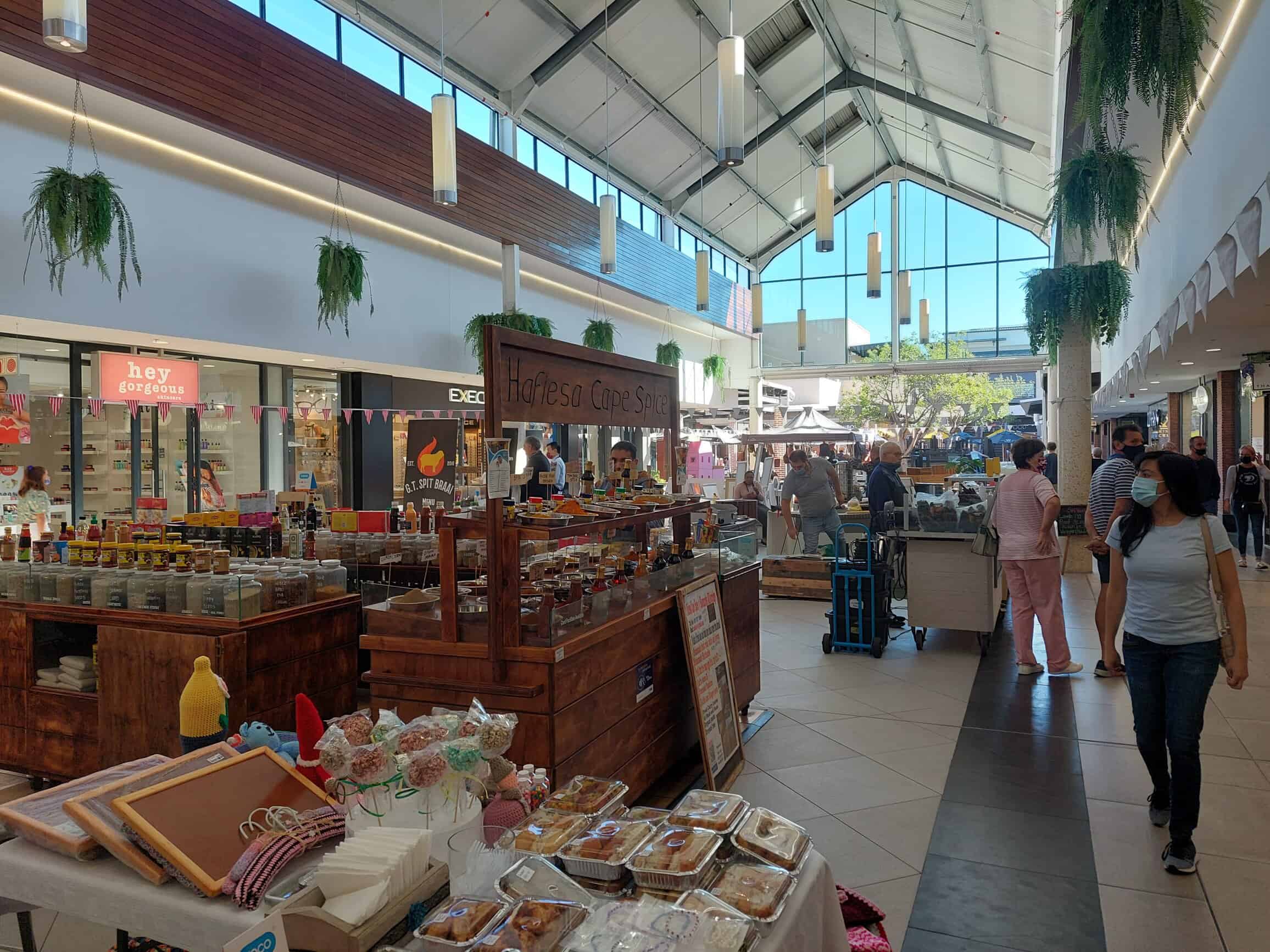
Conclusion: Food Markets of Cape Town
Above covers all the largest and most well-known Cape Town food markets. Craft markets are a different topic. I’ve focused mainly on the markets that are easily reachable from central Cape Town for tourists. However, you could also do a daytrip to e.g. Stellenbosch or Paarl for further market-hopping during weekends.
Two smaller food markets:
- SALT Food Market: 9 Lower Burg Street (CBD) Very small market. Get some sushi or pizza if you live or work close by.
- Eastern Food Bazaar: 96 Longmarket Street (CBD). Indian, Chinese, and Turkish Streetfood. Not a place for specifically healthy food, but good for specifically this kind of regional streetfood.
Add your local market to this article: healthtraveljunkie@gmail.com
Have you been to any of the above markets, and what’s your favorite Cape Town Food Market? Comment below with tips, thoughts or questions to other travelers & locals.
Other Cape Town Articles
Cape Town Wellness Guide (2018)
I marked all the above markets on the map below. It’s up to you to verify the up-to-date location of each market before driving. The larger markets usually don’t change their location, but the smaller ones do.
